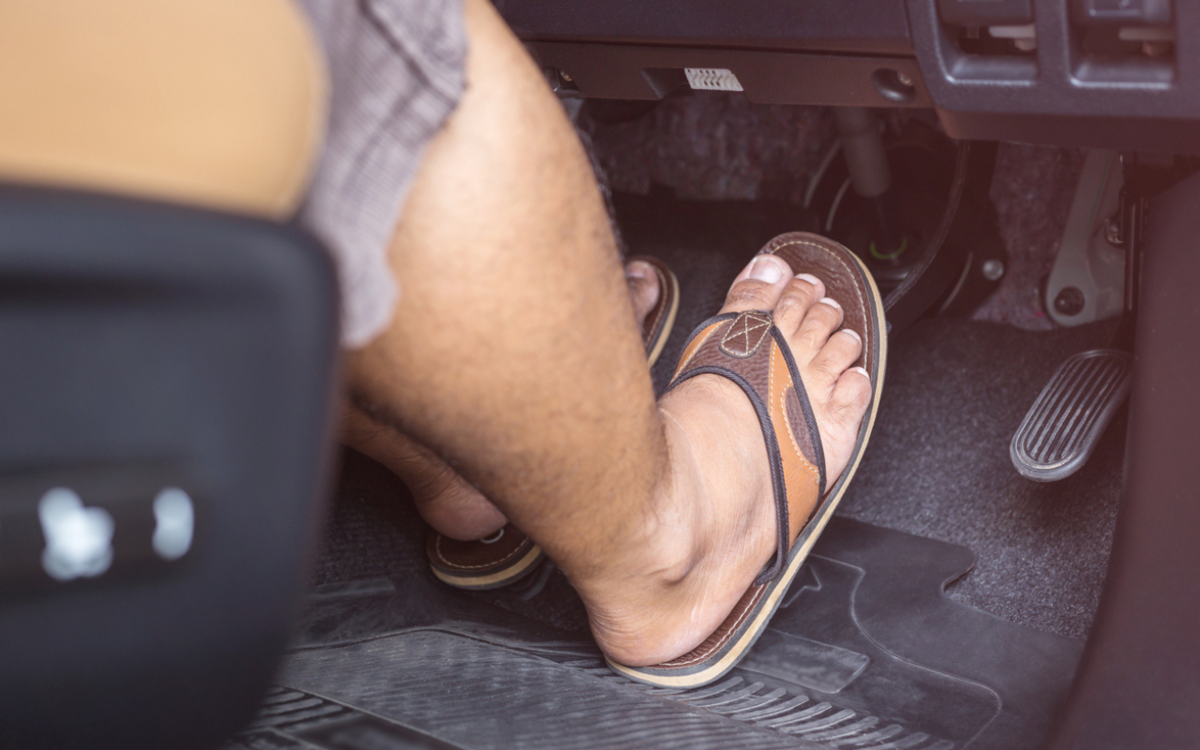Does wearing jandals mean my insurance won’t cover me (sponsored)
Steve MacManus - Insurance contributor
10 April 2025, 5:00 PM

I’m sure someone (usually meaning well) has told you that your car insurance won’t cover you if you have an accident while wearing jandals.
This isn’t necessarily the case. Insurers can decline claims for several reasons, such as drink driving, texting while driving, or driving recklessly. While your jandals may not help with vehicle control if something goes wrong, they wouldn’t be the sole reason for an accident.
While it’s not illegal to wear jandals on a motorbike or scooter, they don’t provide much support or protection. It’s worth considering sturdier footwear for safety.
What Happens If I Hit a Rock on the Cromwell Gorge?
Hopefully, not much. Many of the rocks seem to shatter on impact, but you should pull over as soon as it is safe and check your car.
Inspect your wheels - modern low-profile tyres can be easily damaged.
Look underneath your car - is there any obvious damage? Is there fluid leaking?
If you notice damage or leaks, do not attempt to drive on. Call your insurance broker (or insurer), and they will help arrange for your car to be picked up and transported to a tyre and mechanical workshop for assessment and repair.
Be safe at all times. Never stand on the road.
Hopefully, the ongoing works in the area will help reduce the number of loose rocks.
Keep an Eye on Your Tyre Tread
Just because your car passed its Warrant of Fitness (WoF) in the last 6 -12 months doesn’t mean your tyres are still roadworthy. If your tread is below the legal minimum or your tyres are smooth, your car may not be considered roadworthy, which could invalidate your insurance policy and attract police attention.
Most tyre retailers are happy to check your tread with little notice, so it’s worth getting it looked at.
Inexperienced Drivers & Licence Restrictions
If you own your car and let others drive it, ensure they are following the conditions of their licence.
Restricted licences have clear rules, including driving hours and not carrying passengers unless a full-licence holder is supervising.
We’ve seen claims declined due to licence breaches (even when the accident itself was legitimate).
And don’t try to bend the truth, there are too many cameras and witnesses for that to work nowadays.
Paying an Excess When It’s Not Your Fault
If another insured driver causes damage to your insured car, your excess is usually waived once their insurer confirms their accepted claim.
However, if your car is stolen and damaged, you will typically have to pay the excess, unless the thief is caught and ordered by the courts to pay reparation to you or your insurer.




